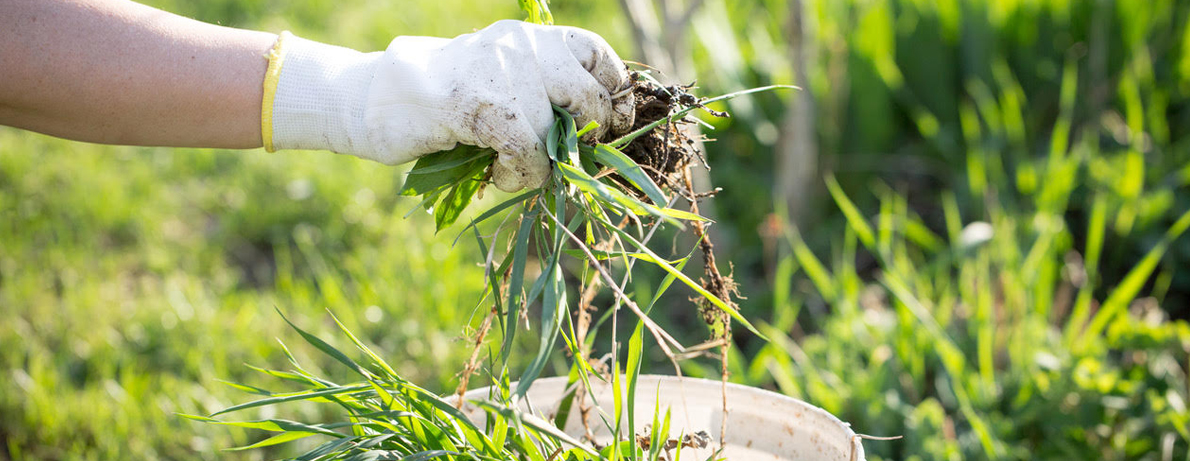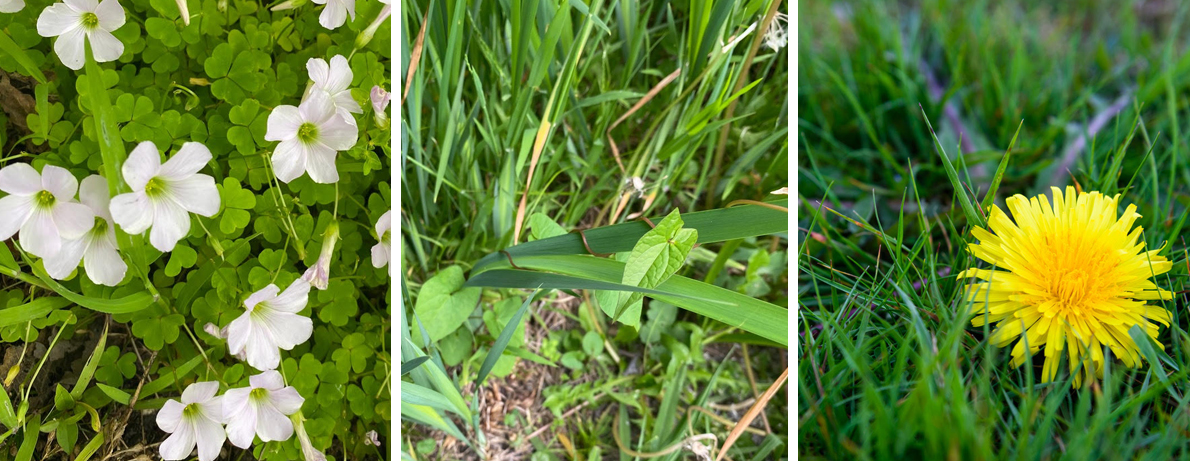Posted by Kelly Jean Reyland
9th Jan 2024
Weed control in the garden

Weeds... defined as simply a plant growing in the wrong place! Unfortunately these plants are usually vigorous competitors, growing faster than the desirable plants and competing for light, moisture and nutrients. And they often give our homes an untidy, uncared for appearance.
There are two broad categories of weeds: Annual weeds (short life cycle), which are mainly a problem in cultivated garden beds, and perennial weeds (long lived or hard to kill) which tend to compete strongly everywhere.
When you move into a house or rental, have a look in the garden or even over the neighbors' fences to see what’s lurking. If there aren’t any aggressive weeds present – do whatever you can to make sure it stays that way. Vigilance is the key and regular inspection. Most of them grow lightning fast. They are not something that you wait ‘to get around to’ - deal with them hard and fast!
If they are present… find another house (only half joking!). Make a plan to get rid of them as soon as possible and carry it out. Physical extraction is sometimes possible but usually a strong pesticide is required.
With any weeds, the golden rule is don’t let them go to seed! Remember ‘One year seeds equals 7 years weeds’. Simply removing the seed heads and putting them in the bin is always a win as you have prevented many more seeds being spread to take the existing weeds place when they are removed.
The second golden rule is ‘little and often’ - small weeds are much easier to kill and can usually be knocked out with cultivation or organic pesticides. Once they get established, they are harder to kill. Keep on top of your weed control regularly and stop a small problem turning into a big problem.
To keep vege and flower gardens controlled, regular cultivation or hand weeding is very effective but time consuming. Utilising mulch is a very effective way to suppress weeds so use a combo of the two methods that is most effective for you.
In the shrub bed, plant densely and mulch each year to keep weeding to a minimum. Weed mat can be used which does allow water to pass through but it does make fertilising more difficult and it doesn’t help to improve the soil. If you are using stones as a mulch please use weed mat. Future you, who has to remove the stone for some reason in the future will thank you for it!

Images: Oxalis in flower and about to set seed; Convolvulus; Dandelion in flower before setting seed.
Mulch is an excellent option - check out our other blog ‘What's so great about mulch’ to find out why.
In lawns, if you keep it thick and don’t mow it too low, the weeds will usually be suppressed. Feed it three times a year to maintain it. There are a few weeds that tolerate regular mowing so they will need a broadleaf lawn spray that will kill the weed but not the grass. A word of caution - ‘broadleaf’ basically includes any plant that isn’t a blade of grass so be very careful where you spray and how you spray. Avoid spray drift and spraying under large trees and bushes whose roots can be affected by the spray.
Unfortunately, there are no selective sprays available to the home gardener for grass weeds such as paspalum and kikuyu. Any herbicide that kills them will kill grass. Professional lawn care companies do have sprays available to them so if it is widespread and you don’t like the idea of spraying off your entire lawn and starting from scratch, it may be worth your while contacting them for information and a quote.
Hard to kill weeds
These are the cockroaches of the plant world. Hard to get rid of and stay rid of.
Weeds like Convolvulus, Wild onion, Bamboo, Oxalis, Arum lily, Blackberry and moth vine.
These need specific powerful herbicides to knock them out or even to just keep them under control so please get some expert advice from your local garden centre and pay attention to the dilution rates.
These powerful herbicides will often have a residual action – where it prevents seeds from germination and stops any plants from growing there for a certain period of time. This is obviously a problem when the weeds are growing amongst desirable plants. Think carefully about how you will apply it carefully and effectively. Mixing up the herbicide as per instructions and then painting it carefully but directly on to difficult weeds is one way to do it. Dipping the growing tip of a weed (especially good for weeds like convolvulus or moth vine with long tendrils) into diluted weedkiller is another option- this carries the herbicide back through to the roots which is especially helpful in gaining control.
Whatever you do, keep at it. Or they will return.
Organic vs Chemical options
For young weeds, organic options that use dilute vinegar or a fatty acid will burn the top off the weeds and kill them. For any established perennial weeds with developed root systems, the top will simply grow back so this is where a glyphosate based option is a more effective and affordable option which will kill the roots but won’t reside in the soil. For harder to kill weeds, glyphosate is less useful unless it has a penetrant such as Grosafe Ecospread added which will greatly improve its effectiveness.
Nature doesn’t like to leave soil bare so it sends plants to cover the soil. Plant your own choice of plants densely, utilise plants with a ground cover habit or cover the ground with a mulch to help prevent weeds growing.
Written for Gubba by Kelly Jean Reyland from Garden Advice NZ (www.gardenadvice.co.nz)


























